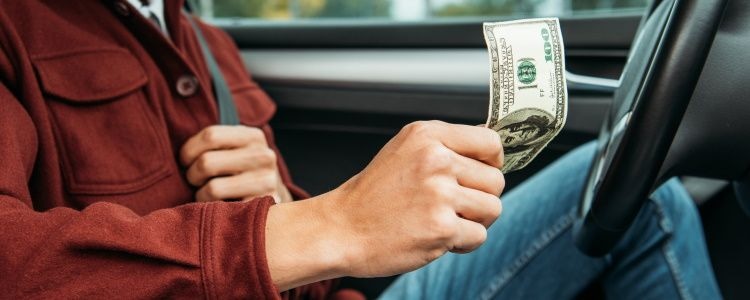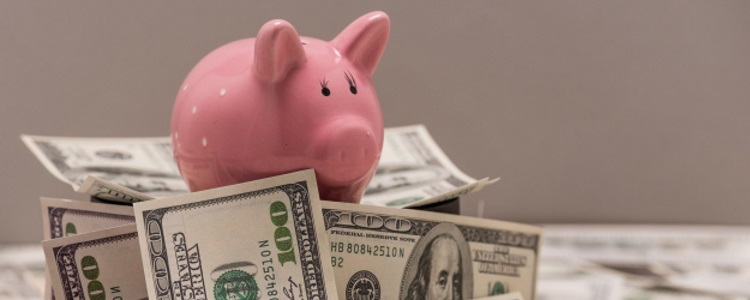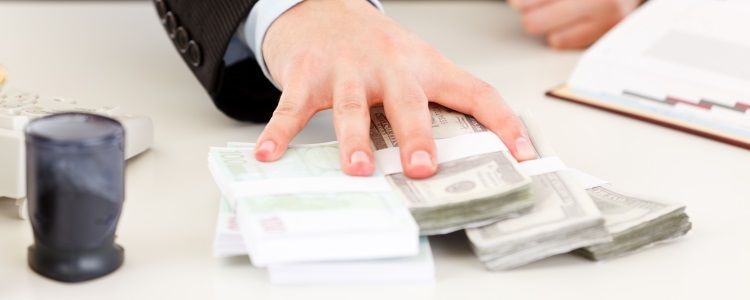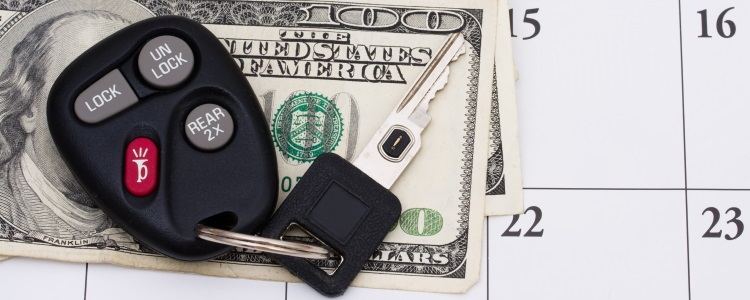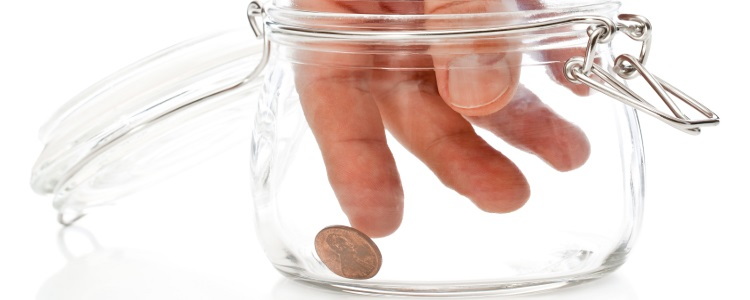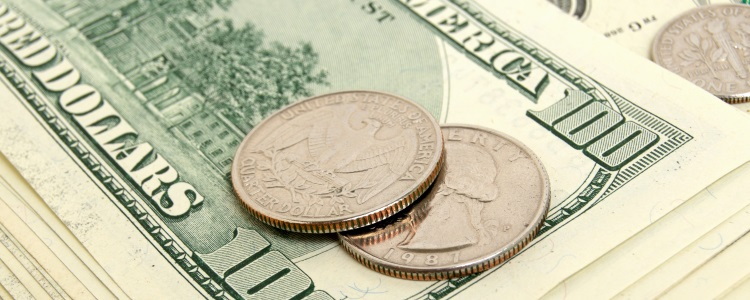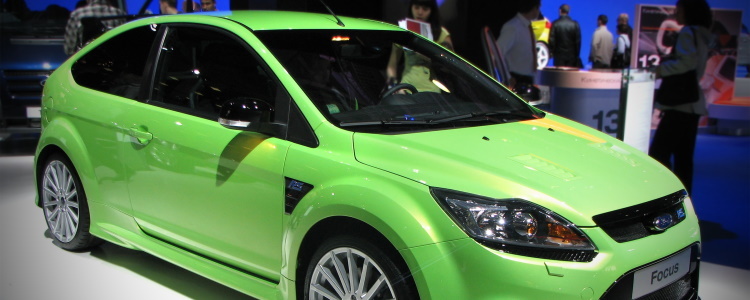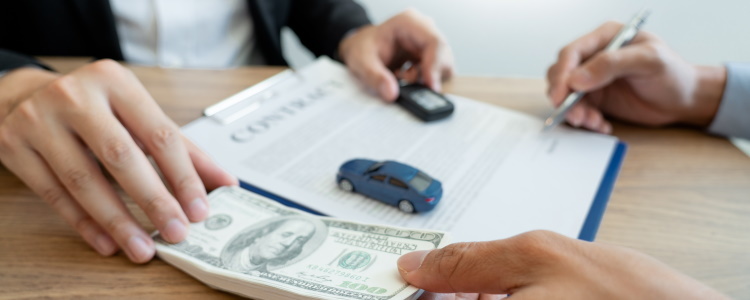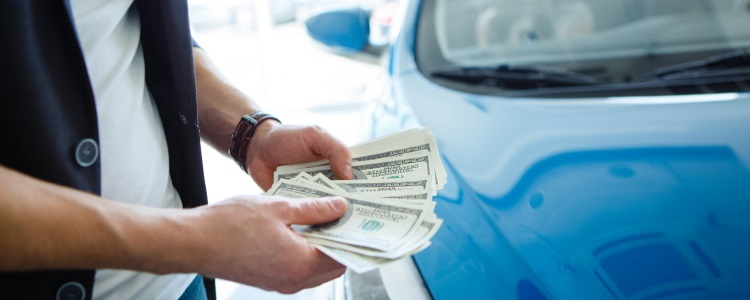Car buyers with bad credit often look for a way to get a car loan without a down payment. With all the advantages that come with putting money down on a car, you'll be better off with a take-charge approach using a down payment. Typically, the larger the down payment, the better off you’ll be. While a large down payment can help your loan, it doesn’t necessarily offset your bad credit. Lenders still look into your credit history and credit score, regardless of how much money you put down.
We get a lot of questions from consumers at Auto Credit Express, but one of the most common is "How much of a down payment do you need for a down payment on a bad credit car loan?". Take this question we received last month:
"I'd like more info about the process. I do not have a down payment ready quite yet. How much generally would I need down for say a $15,000-$30,000 loan? Thanks!"
The truth is it varies based on many factors. However, there are a few tips and tricks we have to help you determine what a good down payment for your situation is.
How Much Money Down for a Car With Bad Credit?
The consumer who sent us the question has the right mindset: they're preparing their car-buying plan of attack in advance. Saving for a down payment is a great way to set your auto loan up for success, but how much will you need?
This consumer wants to know how much they'd need for a loan in the $15,000-$30,000 range. If they're dealing with less-than-perfect credit, this person can expect to need around $1,000 for a down payment. Here's why:
When it comes to special financing, lenders typically require borrowers to make a down payment of $1,000 or 10% of the car's selling price, whichever is less. Because 10% of $15,000 is $1,500, many subprime lenders would only require $1,000 down (the lower number of the two).
However, keep in mind this is only the minimum amount you're expected to have. In fact, the bigger your down payment, the better off you'll be thanks to all the advantages that come with making one. Without the minimum down payment amount, qualifying for a car loan with less-than-perfect credit can be difficult. In this sense, a down payment does offset poor credit in a way.
Since this is just the typical minimum requirement with a subprime lender, so you’re more than welcome to put more money down if you can. In fact, it’s highly recommended you put more than the minimum amount down. A down payment can help you save money by reducing the amount you have to borrow. This can also reduce the interest charges you pay, which can make a big difference considering the higher-than-average interest rates of bad credit car loans.
Reasons Why You'll Want a Down Payment
There are many benefits that come with making a down payment, including:
- Helps Your Chances of Getting Approved – A down payment is typically required for consumers who're dealing with credit issues, but it also lowers a vehicle’s loan-to-value ratio. Learn more about how lowering this ratio can help you get approved here.
- You Save Money in the Long Run – Putting money down up front means you borrow less money. When your loan is smaller, your monthly payments are too. More importantly, borrowing less reduces the amount you end up paying in interest charges.
- The Option for a Shorter Loan Term – Instead of reducing the monthly payment, you may be able to keep payments in the same ball park while reducing the loan term. A shorter loan will result in lower interest charges.
- Build Equity – Vehicles depreciate in value, and it can be a problem when you owe more on your loan than your car is worth. A down payment helps build equity and reduces the length of time you're upside down.
What's A Good Down Payment On A Car With Bad Credit?
A good down payment amount is relative to the sale price of the car and depends on your credit score. If you're looking to place a larger down payment on a car loan, it may help solve some of the credit issues if you have bad credit. Most experts suggest you place at least 20% down on a car when you purchase it and never go below 10% unless you financially have to.
- For a brand-new car, the required initial payment, or cash due at signing, is usually predetermined.
- For a used car, you generally want to put at least 10% down or more of the vehicle's sale price.
- Most lease customers should just stick with the required cash due at signing, instead of paying as much down as possible.
A lender may require more money down on a new car than a used car to help offset any depreciation it may incur.
Bad Credit Auto Loan Down Payment
If you have bad credit, poor credit, or even no credit, you should expect to have a minimum down payment of 10% or $1,000 for your car, whichever is the lower amount. If you're trying to get a high-risk auto loan, you may even have to have a higher down payment.
If you're not sure where your credit stands, you can get your credit score here. Take a look at some of the common sales prices for cars and how much of a down payment you’ll need with bad credit:
| Sale Price | Percentage | Est. Down Payment |
| $15,000 | 10% | $1,500 |
| $20,000 | 10% | $2,000 |
| $25,000 | 10% | $2,500 |
| $30,000 | 10% | $3,000 |
| $35,000 | 10% | $3,500 |
What if I Want to Put 50% Down?
When you put 50 percent down on a car, the loan-to-value ratio will be extremely low. Basically, this means the car will always be worth more than the loan balance. Most lenders will accept a 50 percent down payment, provided the loan balance still meets their minimum amount to finance requirement. But they'll also check further to make sure you can actually afford the monthly payment.
This is because there’s more to qualifying for an auto loan than just your credit score and down payment. The lender will also check to make sure you meet their basic requirements including income, residence stability, and ability to pay. So, even if you are able to put 50 percent down, it may take more than that to get approved.
Where Does The Down Payment On A Car Go?
Whether you have good credit or bad credit, putting money down on a car has advantages. The larger the down payment means you’re paying less each month toward the car, and, in some cases, you may get a better interest rate.
The general rule of thumb is that you’ll drop $20 on your payment for every $1,000 you put down on a car, but this isn’t always the case and every loan and situation is different.
A down payment is primarily used to offset any depreciation that the car may incur as soon as it's driven off the lot. If you don’t use a down payment on your car loan, then you instantly be paying more than the car is worth once you add in all the fees, tax, and other costs, which puts you underwater on your car loan right away. When you have equity in your car, it gives you quite a bit of flexibility in the future if you were to trade it in or sell it.
The Bottom Line
If you don’t know which credit tier you fall into, it’s a good idea to plan for a 10% down payment when you talk to a dealer, even if you qualify for zero down. The down payment can help you reduce your monthly payment as well as cut down on interest charges. Keep in mind that you also need to budget for the initial car insurance purchase with your 10% down for a car.
If you've prepared your down payment and are ready to look for your next auto loan, we want to help. Simply fill out our no-obligation auto loan request form and we'll get the process of finding you a local dealership with financing opportunities. What are you waiting for?
